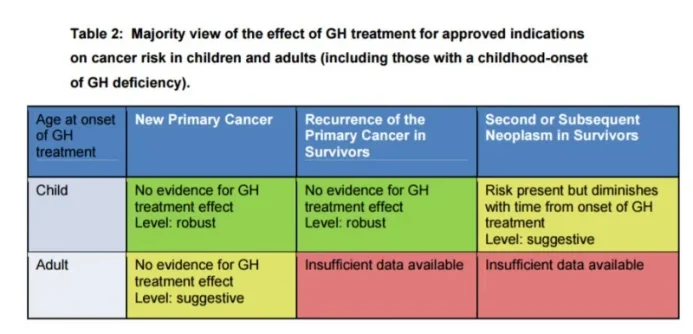From the study:
"In contrast, recent findings from the Study of Health in Pomerania (SHIP) suggest an increased 9-yr risk of cancer death for men with extremely low IGF-I levels (<10th percentile)"
My comment - as with all hormones (and resultant byproducts such as IGF-1), too much or too little likely imparts increased risk...BALANCE is key, however for some we do NOT yet have a firm grasp on what that "balance" is.
From the study:
"During the 18-yr follow-up, there were 368 deaths among men, 74 (20%) due to cancer. The most common types were prostate (n = 18), lung (n = 17), and colorectal (n = 12) carcinomas, together comprising nearly two thirds of cancer deaths in men."
My comment - out of 368 deaths, 294 of the deaths (80%) were NOT from cancer. Knowing the "most common causes of death" in this country, it is very likely the majority of the 80% of non-cancer deaths were from heart disease, diabetes complications, and various different "metabolic syndrome" complications. It should be noted that some of the benefits of at least adequate IGF-1/GH levels (maintain/increase lean body mass, decrease fat/adipose tissue = decrease body fat%) are well known to IMPROVE metabolic processes and reduce the risk of "metabolic syndrome" longterm consequences (heart disease).
Also should be noted that the of the 3 top cancer "killers" in the study - 2 of them (prostate and colorectal) are typically easily detected by staying up to date on routine screenings and early detection generally = better outcomes. The other of the 3, lung cancer, has an easily (relatively speaking) modifiable number 1 risk factor of smoking.
Also should be noted that the mean age of patients at initiation of the study was 73 years old, with a range of 51 - 98 years old. Increasing age alone, especially >70yo is a significant risk factor for many cancers including two of the big ones...prostate and colorectal cancer (again typically easily detected by keeping up to date on routine screenings).
BTW, the video above is great as well and I certainly agree with the merits of supporting and maintaining adequate anti-oxidant levels for many reasons.















